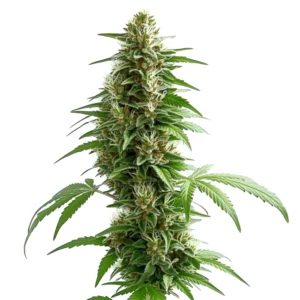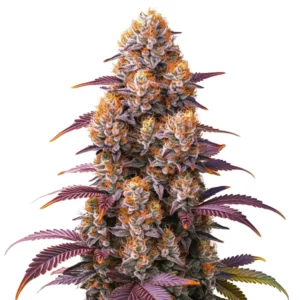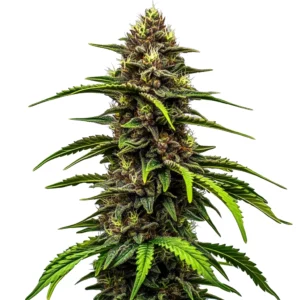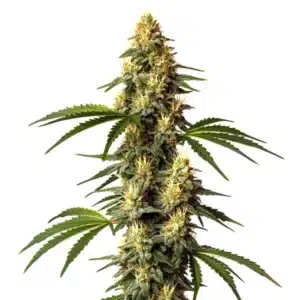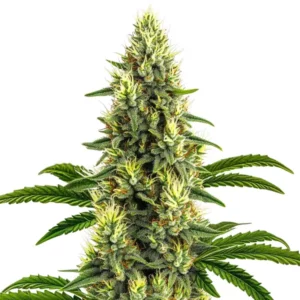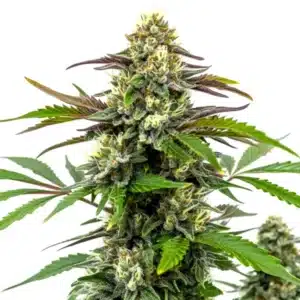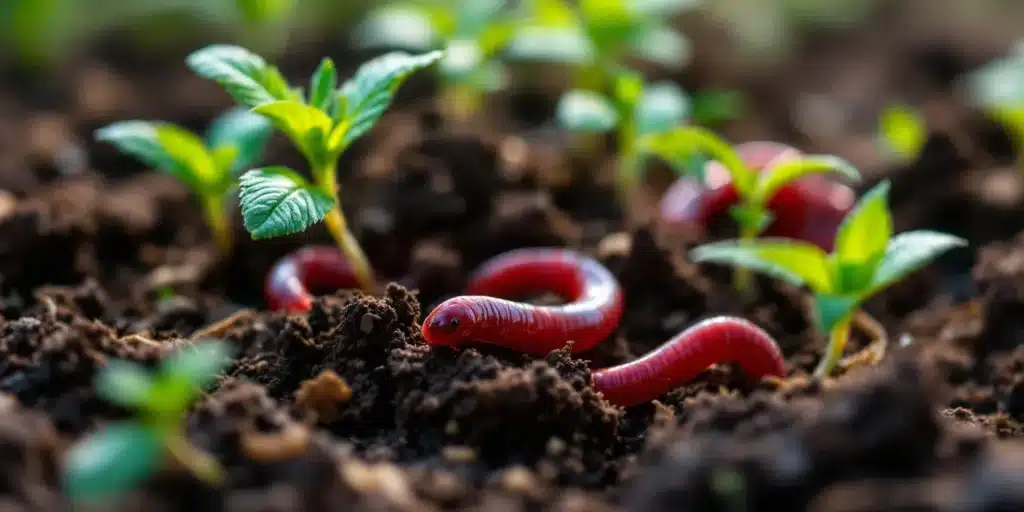
Are Worms Beneficial for Cannabis Plants?
When nurturing cannabis plants, soil quality plays a crucial role. This brings us to an intriguing question: are worms beneficial for cannabis plants? To provide a well-rounded answer, we’ll explore the advantages worms bring to the soil and overall plant health.
The Benefits of Worms in Cannabis Cultivation
Worms are more than just little creatures crawling through the soil. They play an important role in the ecosystem of a thriving garden. As they tunnel through the ground, they create pathways that enhance aeration and drainage. This can be particularly advantageous for cannabis plants that flourish in well-draining media.
Recommended Strains
Green Crack
|
|
THC | 21% (Medium) |
|
|
Type | Feminized |
|
|
Yield | High |
|
|
Phenotype | 35% Indica / 65% Sativa |
Green Crack Auto
|
|
THC | 18% - 20% (Medium) |
|
|
Type | Autoflowering |
|
|
Yield | High |
|
|
Phenotype | 50% Indica / 50% Sativa |
Moreover, as they consume organic matter, worms break it down into essential nutrients like nitrogen and phosphorus that cannabis plants absorb with ease. This process leads to vibrant, living soil, which supports healthy root growth and vigorous plant development. Their presence can significantly boost yields, making them a cherished addition for dedicated growers.
Additionally, worms help improve soil structure. Healthy soil contributes to a more robust ecosystem, which includes beneficial microorganisms. These microorganisms can also aid in nutrient absorption by the cannabis plants, creating a well-rounded growing environment. Thus, integrating worms into your cultivation practices fosters sustainability and resilience within your garden.
Worm Castings: A Natural Fertilizer
Worm castings serve as an exceptional organic fertilizer and are highly esteemed by cannabis cultivators. The rich nutrient profile of worm castings makes them an ideal choice for encouraging lush, vigorous growth. They are abundant in essential nutrients—specifically nitrogen, phosphorus, and potassium, which are vital for the health of plants.
Besides providing nutrients, worm castings also enhance soil structure and increase water retention. This characteristic is particularly beneficial for cannabis plants, as strong water retention helps them endure stress during hot, dry periods. Unlike synthetic fertilizers, which can overwhelm plants, worm castings release nutrients gradually, ensuring that plants receive a continuous supply over time.
Moreover, worm castings also contain beneficial microbes that can help fight diseases. This natural aid not only contributes to stronger plant health but also minimizes the need for chemical interventions, making your growing operation more environmentally friendly.
How to Use Worms in Your Cannabis Garden
Introducing worms to your cannabis garden can be a straightforward process. You can start by creating a worm bin, which allows you to cultivate your own worm castings. Choose a suitable container, add shredded newspaper or cardboard as bedding, and invite red wigglers into your garden—the best type of composting worms. It’s important to keep your worm bin moist but not oversaturated.
Once you’ve gathered your worm castings, you can incorporate them directly into your soil. The best times to add castings are when you’re preparing your soil before planting or as a top dressing during the growing season. This enriches the soil, leading to stronger, healthier plants.
You can even consider implementing vermicomposting systems that use worms to efficiently break down your kitchen waste. Just imagine contributing to your garden while minimizing waste—it’s a win-win for you and the environment!
Promos & Deals
Identifying the Right Worms for Your Garden
Not every worm is suited for gardening. While there are numerous species, red wigglers are optimal for composting. These active worms thrive in rich organic matter and possess remarkable digestive systems that effectively break down various materials, making them outstanding companions for cannabis cultivation.
When sourcing worms, aim to purchase from local composting farms or reputable online suppliers. Ensure the worms you acquire are healthy and vigorous, as they need to adapt well to your worm bin or garden. Avoid using typical garden worms, as they do not contribute as effectively to composting processes and may not thrive in the same conditions.
As you learn more about worm species, you’ll notice the benefits of diverse composting methods. Investigating local worm varieties and understanding their unique traits can also enrich your gardening experience and contribute even more to your plants’ success.
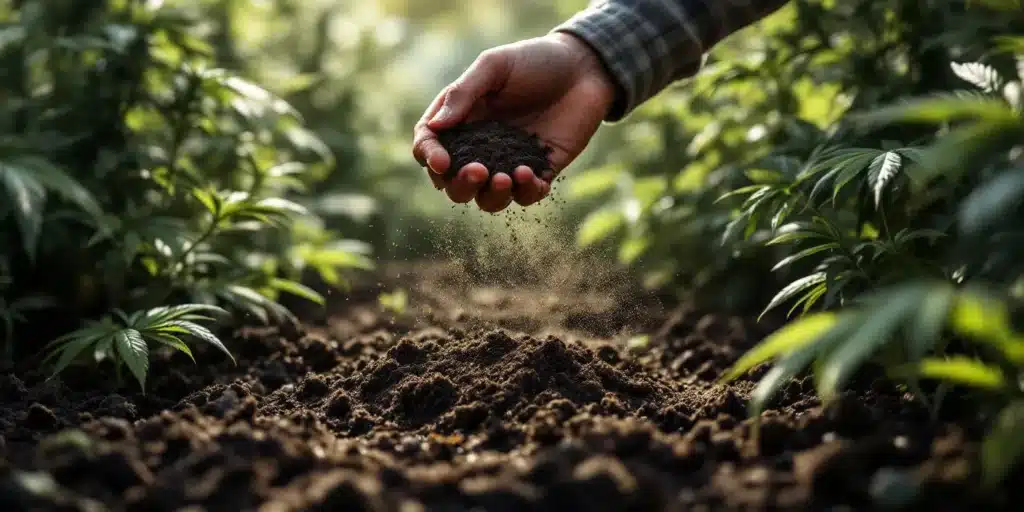
Regular Care and Maintenance
Caring for worms doesn’t have to be an arduous task. It primarily involves ensuring they have enough food and the right living conditions. As a general guideline, feed your worms about half their body weight in organic scraps weekly. Ideal foods include vegetable peels, coffee grounds, and crushed eggshells while steering clear of fatty or oily items.
Maintaining appropriate moisture levels in your worm bin is essential. To assess this, grasp a handful of the bedding; it should feel like a damp sponge. If it feels too dry, add a little water; if it’s too moist, add dry materials to achieve a balanced environment.
It’s also beneficial to observe your worms regularly. This way, you can promptly address any issues they might encounter, ensuring a thriving population that continues to support your cannabis plants.
Common Mistakes to Avoid
Even seasoned growers can make errors when integrating worms into their gardening practices. One of the most common misunderstandings is overfeeding. It’s tempting to think that more food will result in more castings, but worms have limits. Overfeeding can lead to leftover scraps, creating unpleasant odors and attracting unwanted pests.
Additionally, neglecting to check the temperature of the worm bin can be detrimental. Worms thrive in a temperature range of 55°F to 77°F. If the conditions become too warm, worms may become stressed or perish. Placing the bin in a stable temperature environment will help keep these valuable allies healthy and productive.
By refining your understanding of the worm care process, you’ll be able to establish a flourishing relationship with your worms, greatly benefiting your cannabis cultivation.
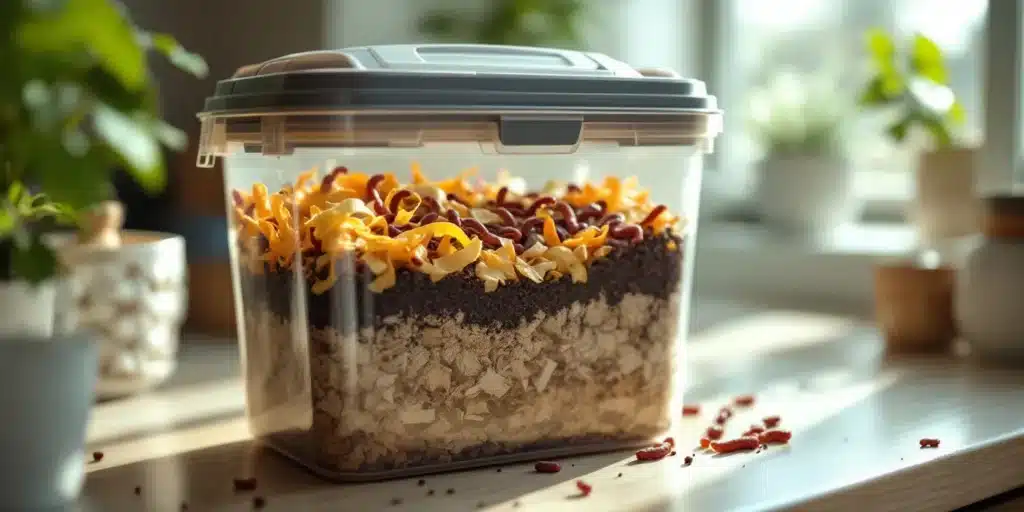
The Impact on Cannabis Plant Health
Integrating worms and worm castings into your growing environment can yield wonderful benefits for your cannabis plants. Healthier soil directly correlates to healthier plants, enabling them to resist pests and diseases more effectively than weaker alternatives. This not only promotes a successful cultivation experience but also fosters a sense of accomplishment as a grower.
Moreover, robust, thriving plants can produce better yields and improved cannabinoid profiles. As your plants grow stronger, they express their unique qualities, leading to enhanced flavor and potency. This transformation can elevate your overall gardening experience, allowing you to enjoy the fruits of your labor.
Recommended Cannabis Strains for Healthy Growing
Choosing the right cannabis strains can enhance the benefits of your worm-enriched garden. Here are three strains that can thrive in a nurturing environment:
- Blue Dream: Known for its balanced effects, Blue Dream is perfect for both beginners and experienced growers. This strain flourishes in nutrient-rich soil and benefits significantly from the healthy microbes introduced by worms.
- OG Kush: A classic favorite, OG Kush is celebrated for its distinctive flavor and potent effects. It responds positively to organic fertilizers, making it an ideal candidate for a worm-enhanced garden.
- Green Crack: With uplifting effects, Green Crack ranks among daytime favorites. Its need for well-draining soil complements the aeration provided by worms, ensuring the development of a strong root system.
By selecting optimal strains that flourish in rich, organic environments, you can create a thriving cannabis garden that truly benefits from the incorporation of worms.
Monitor and Adjust for Optimal Results
As you introduce worms to your cannabis garden, it’s vital to closely monitor plant health and responses. If your plants show signs of nutrient deficiencies—such as yellowing leaves or stunted growth, you may need to make adjustments, whether through additional worm castings or different soil amendments. Keep an open mind and be willing to experiment based on how your plants react, as gardening is often a journey of trial and refinement.
Connecting with fellow growers can provide valuable insights into what adjustments work in various situations. Engaging with local or online communities may reveal shared experiences that lead to improved growth practices, saving you time and enhancing your gardening outcomes. Building these relationships enriches not only your knowledge but also contributes to a supportive gardening network.

Frequently Asked Questions
How do worms improve soil health for cannabis plants?
Worms enhance soil structure through their movement, promoting aeration and improving water drainage. Their castings add important nutrients, enriching the fertility and microbial diversity in the soil.
Can I use any type of worm for my cannabis garden?
Red wigglers are the optimal choice for composting and enriching cannabis soil. They excel in breaking down organic matter and are effective at producing high-quality worm castings.
Do I need to buy worms, or can I find them naturally?
It is possible to find worms in your garden or compost pile, but purchasing healthy red wigglers guarantees that you start with thriving worms that will perform effectively in your garden.
How often should I add worm castings to my soil?
Incorporating worm castings during initial planting and as a top dressing every few weeks helps maintain soil health. This ongoing addition ensures nutrient levels are sustained throughout the growing season.
Will worms attract pests in my garden?
Worms themselves do not attract pests, but their feeding habits can produce unpleasant odors if not properly managed. Maintaining balance in the worm bin and ensuring optimal conditions will help prevent any potential pest issues.



